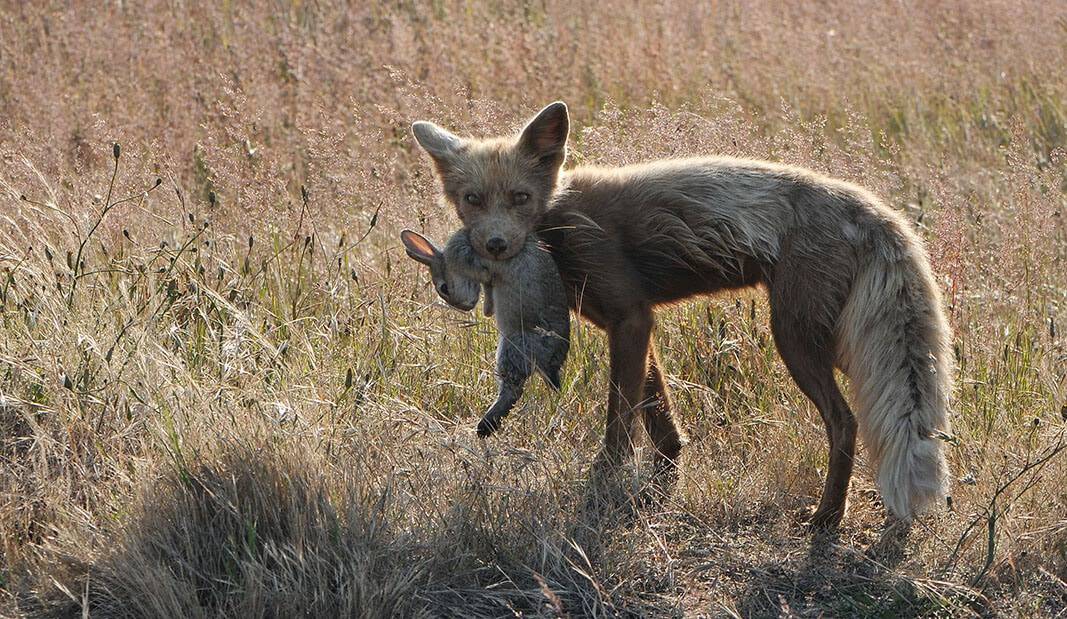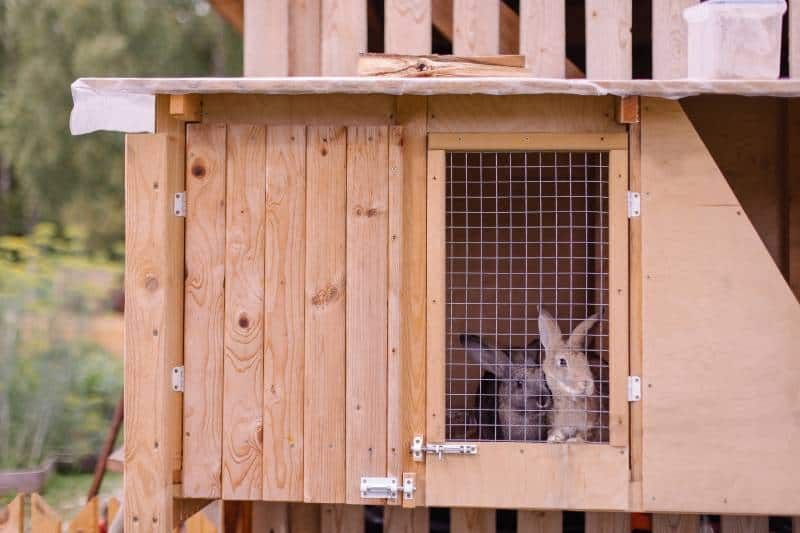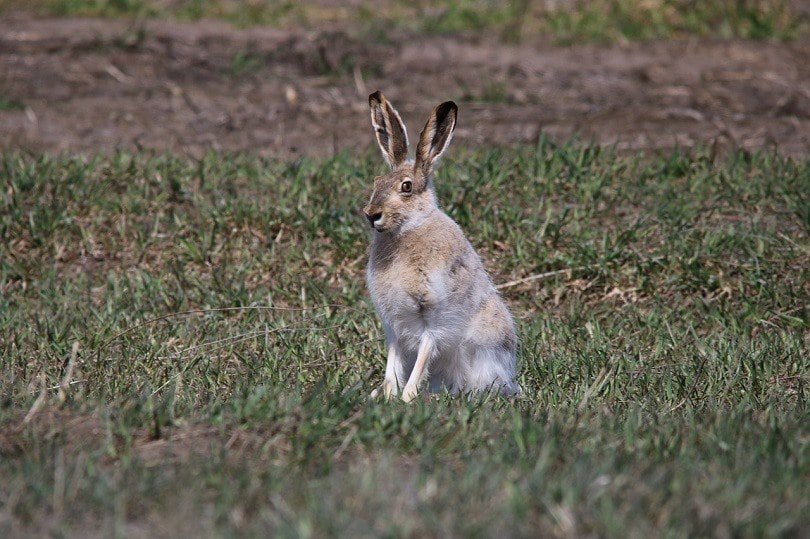Foxes are wily and swift and can be quite dangerous to small animals. These well-adapted predators can be found across the globe in many regions, and they haven’t been so successful by accident. Not only are they cunning and agile, but they are also opportunistic. These creatures will eat just about anything that they come across.
Despite being rather small in size, foxes can do quite a bit of damage. They’ve even been known to break into backyards and make their way into pet enclosures. In the wild, foxes eat rabbits as one of their main sources of food, particularly at certain times of the year. They’ll also make their way into the hutch of your pet rabbit if they see an opportunity. Of course, they’re not singling out rabbits. No small pets are safe if a fox is around, and your garden might be in trouble too!

Fox Foods by Season
Part of the reason foxes are so successful is because they are incredibly opportunistic and will hunt a wide variety of prey animals. If prey are in abundance, foxes will kill excess and stash them to eat later. This is why they are particularly dangerous for backyard pets. If they gain access to a coop or hutch, they can so easily decimate multiple animals in a very short period of time. They will then carry one off to stash and return to collect the other carcasses as well.
Though it is very disheartening to open a hutch to see the scene of a massacre, it’s important to be aware of this possibility and put appropriate measures in place to deter its occurrence in the first place.

Foxes have been known to kill various backyard pets. Small dogs and even cats often become fox prey. Larger animals, such as big dog breeds, are not at much risk, and many livestock dog breeds do an excellent job of keeping foxes away.
But rabbits are easy prey for a fox because they are essentially defenseless, especially when they’re trapped in a hutch a fox gains access to. Wild rabbits have speed at their disposal, though, so if they’re quick and lucky, a wild rabbit might escape a hunting fox. The rabbit in your backyard is protected by their enclosure, but given enough time, a fox could make it past those defenses and have an open pass to attack your pet.
Different times of the year present changing feeding opportunities for a fox. In the colder winter months, foxes are in full predator mode. Their main sources of food during this time are small animals, including rabbits, rodents, birds, and anything else they manage to kill.
In autumn, foxes will feed on more plants, including berries, apples, acorns, tubers, and whatever else they can find. When it gets hot in the summer, you’ll find foxes eating small prey, including insects like crickets, caterpillars, and beetles, though they’ll also eat small animals, like rodents. Springtime means eating earthworms and bird eggs and doing a bit of aquatic hunting for fish and crabs in the shallows.
How Foxes Hunt
Although you’ll often see foxes during the day, especially in urban areas, they’re creatures that prefer to do their hunting at night. These predators hunt by stalking their prey. Using their incredible sense of hearing, they can listen for animals that are burrowing underground or under the snow. Then, they can dig down to their prey or pounce on it when it breaches the surface.
Large prey is hunted a bit differently. For bigger animals, including rabbits, foxes will usually quietly stalk the animal until they’re very close. When the rabbit turns to run, the fox will attack from behind. They’ve also been known to patiently wait for long periods near rabbit dens for their quarry to emerge and they can pounce and make the kill.

Urban and Rural Foxes
Foxes eat differently depending on where they’re located. Urban foxes eat food sources that are attracted by humans, including many rodents like mice and rats. They’ll also feed on roadkill left behind by accidents. Pigeons make up a good portion of an urban fox’s diet, along with food left out by residents and anything that they can scavenge from a garden or trash can.
In the wild, foxes have to work a bit harder to find most of their food. They’ll generally eat whatever they can find, including wild plants, small mammals, birds, reptiles, amphibians, crustaceans, and fish. Foxes have nearly as diverse a diet as humans!

Keeping Your Rabbits Safe
The following tips can help keep your rabbits safe from foxes. You might have to use a combination of these tips to ensure that your pets are safe from a prying fox.
Install Secure Fencing
The single most effective way of stopping a fox from getting to your rabbit is to erect a secure fence. Many people that live in areas with foxes consider this mandatory in order to keep pets outdoors.
A fence installed to keep foxes at bay should have the following features:
- The fence needs to be at least 6 feet high and should slope outwards. This slope prevents the fox from being able to climb in, while the height means that even the most determined foxes will be prevented from getting on top.
- Ensure the fence is away from objects that a fox could use to assist in entry. For example, a stump, shorter fence, water butt, or other objects surrounding your fence that would make it easy for a fox to access your rabbit should be eliminated.
- Foxes can chew through some fences, and they can sneak through gaps. Ensure your fence doesn’t have gaps and is chew-proof.
- Foxes can also dig, so you should bury the base of the fence at least half a foot down to prevent predators from getting in this way. Rabbits, too, can dig, and you should make sure your pets don’t inadvertently dig near the fence, making the job easier for the fox.
Keep Rabbits in a Hutch
Your rabbits should be placed in a hutch so that they are protected from foxes, other predators, and the elements. The hutch should be escape-proof (for your rabbit) and entry-proof (for predators).

Consider Livestock Guarding Dogs
A livestock guarding dog breed might be a good idea if you have several farm or outdoor pets. Dogs can help protect your animals, be rewarding pets themselves, and offer you an additional source of control against many predators.
Invest in Anti-Predator Technology
Motion-detecting cameras, sound deterrents, light deterrents, and surveillance cameras are all good options for keeping foxes away from your pets.
Yard Clean Up & Maintenance
Leaving trash bins open or debris and animal food out in the open might lure a fox (or another predator) near your pets. It’s important to ensure that your yard is clean and free of these attractants.
Having a regular cleaning schedule for your yard also helps you keep an eye on your fences, hutches, and other equipment to ensure that they’re working properly and not in need of repairs.


Final Thoughts
Foxes don’t discriminate much when it comes to their food sources. If it’s edible, a fox will eat it. They’re omnivores, so just about everything is edible to a fox, and backyard pets, gardens, and even garbage bins are all at risk if there’s a fox nearby. Rabbits especially make tasty treats for a fox as they have no natural defenses and provide quite a lot of food for a single kill. So, if you’re concerned about your backyard rabbits’ safety, you might want to ensure that your enclosure is 100% fox-proof.
Featured Image Credit: jmrockeman, Pixabay
